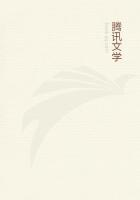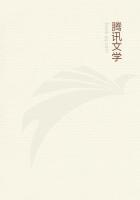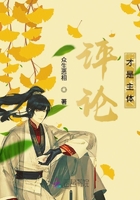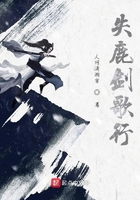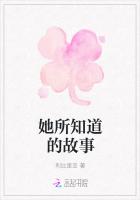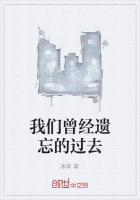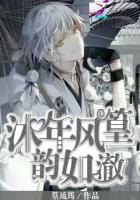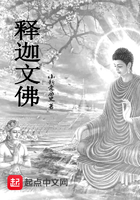"The next day I repaired to the public market-place; and, when my business was known, I had choice of customers before night--my chest was empty, and my purse was full. The profit I made upon the sale of these clothes was so considerable, that I could not help feeling astonishment at Rachub's having brought himself so readily to relinquish them.
"A few days after I had disposed of the contents of my chest, a Damascene merchant, who had bought two suits of apparel from me, told me, with a very melancholy face, that both the female slaves who had put on these clothes were sick. I could not conceive that the clothes were the cause of their sickness; but soon afterwards, as I was crossing the market, I was attacked by at least a dozen merchants, who made similar complaints. They insisted upon knowing how I came by the garments, and demanded whether I had worn any of them myself. This day I had, for the first time, indulged myself with wearing a pair of yellow slippers, the only finery I had reserved for myself out of all the tempting goods. Convinced by my wearing these slippers that I could have had no insidious designs, since I shared the danger, whatever it might be, the merchants were a little pacified; but what was my terror and remorse the next day, when one of them came to inform me that plague-boils had broken out under the arms of all the slaves who had worn this pestilential apparel! On looking carefully into the chest, we found the word 'Smyrna' written, and half effaced, upon the lid. Now, the plague had for some time raged at Smyrna; and, as the merchants suspected, these clothes had certainly belonged to persons who had died of that distemper. This was the reason why the Jew was willing to sell them to me so cheap; and it was for this reason that he would not stay at Grand Cairo himself to reap the profits of his speculation. Indeed, if I had paid attention to it at the proper time, a slight circumstance might have revealed the truth to me.
Whilst I was bargaining with the Jew, before he opened the chest, he swallowed a large dram of brandy, and stuffed his nostrils with sponge dipped in vinegar; he told me, he did to prevent his perceiving the smell of musk, which always threw him into convulsions.
"The horror I felt when I discovered that I had spread the infection of the plague, and that I had probably caught it myself, overpowered my senses--a cold dew spread over all my limbs, and Ifell upon the lid of the fatal chest in a swoon. It is said that fear disposes people to take the infection; however this may be, Isickened that evening, and soon was in a raging fever. It was worse for me whenever the delirium left me, and I could reflect upon the miseries my ill-fortune had occasioned. In my first lucid interval I looked round, and saw that I had been removed from the khan to a wretched hut. An old woman, who was smoking her pipe in the farthest corner of my room, informed me that I had been sent out of the town of Grand Cairo by order of the cadi, to whom the merchants had made their complaint. The fatal chest was burnt, and the house in which I had lodged razed to the ground. 'And if it had not been for me,' continued the old woman, 'you would have been dead probably at this instant; but I have made a vow to our great Prophet that I would never neglect an opportunity of doing a good action; therefore, when you were deserted by all the world, I took care of you. Here, too, is your purse, which I saved from the rabble--and, what is more difficult, from the officers of justice.
I will account to you for every part that I have expended; and will, moreover, tell you the reason of my ****** such an extraordinary vow.'
"As I believed that this benevolent old woman took great pleasure in talking, I made an inclination of my head to thank her for her promised history, and she proceeded; but I must confess I did not listen with all the attention her narrative doubtless deserved.
Even curiosity, the strongest passion of us Turks, was dead within me. I have no recollection of the old woman's story. It is as much as I can do to finish my own.
"The weather became excessively hot; it was affirmed by some of the physicians that this heat would prove fatal to their patients; but, contrary to the prognostics of the physicians, it stopped the progress of the plague. I recovered, and found my purse much lightened by my illness. I divided the remainder of my money with my humane nurse, and sent her out into the city to inquire how matters were going on.
"She brought me word that the fury of the plague had much abated, but that she had met several funerals, and that she had heard many of the merchants cursing the folly of Murad the Unlucky, who, as they said, had brought all this calamity upon the inhabitants of Cairo. Even fools, they say, learn by experience. I took care to burn the bed on which I had lain and the clothes I had worn; Iconcealed my real name, which I knew would inspire detestation, and gained admittance, with a crowd of other poor wretches, into a lazaretto, where I performed quarantine and offered up prayers daily for the sick.
"When I thought it was impossible I could spread the infection, Itook my passage home. I was eager to get away from Grand Cairo, where I knew I was an object of execration. I had a strange fancy haunting my mind; I imagined that all my misfortunes, since I left Constantinople, had arisen from my neglect of the talisman upon the beautiful china vase. I dreamed three times, when I was recovering from the plague, that a genius appeared to me, and said, in a reproachful tone, 'Murad, where is the vase that was entrusted to thy care?'

